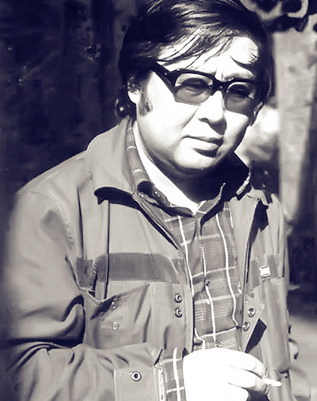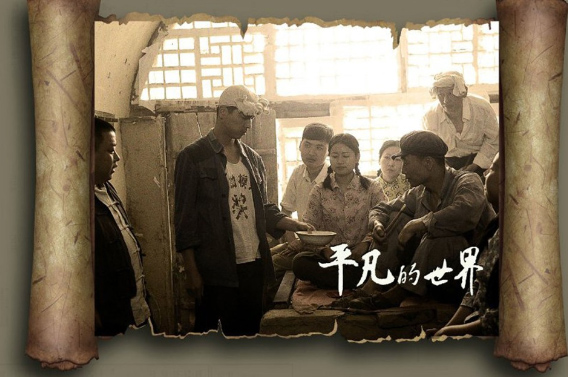Ordinary World: A literary reflection of no ordinary life

Lu Yao

Since its adaptation into a TV series, the Ordinary World by Lu Yao was revived the public’s interest in rurual literature.
Recently, there has been a revival of interest in the long-deceased author Lu Yao owing to the success of a TV drama adapted from his novel Ordinary World, which is of great eminence in contemporary Chinese literature.
General readers tend to sympathize with the youthful aspirations and indomitable spirit of the characters depicted in the novel. On the other hand, some literary critics have criticized it for lacking literary consciousness and having a mediocre, predictable storyline. However, given the rapid growth of grassroot literature and various challenges faced by relevant writers, it is advisable for us to once again look at Lu Yao and his Ordinary World because the novel offers the best lesson on depicting life at the bottom.
Capture real lives
Beneath the current debate lies an underlying perception assumed by many critics that authors can never break away from their self-constructed identities or capture the real lives of disadvantaged groups since there is an unbridgeable gap between them.
Indeed, such a perception is confirmed by a number of fictional works portraying the lives of common people. Usually highly educated and formally trained in writing, the authors find it problematic to approach the underclass. Anxious for new arenas and breakthroughs, some regard grassroot literature as an innovative literary genre and artistic style, and so they attempt to tackle the topic from a top-down perspective in a self-centered manner. Li Yunlei, a notable literary critic, observed that they have, through writing about the travails of ordinary people, degraded the narrative mode of grassroot literature into a personal way to transcend beyond the aesthetic form with appalling nonchalance.
Authors who genuinely want to speak for grassroot groups need to sustain an equal, effective and ongoing dialogue with common folks. In the 1980s, Lu Yao was already fully aware of such a necessity. He knew how to approach the disadvantaged class, how to stay close with them, and how they think and feel.
Lu Yao once said: “The everyday life of ordinary people never dies out. I cannot help but extol its vitality. Without an in-depth insight into the working class sentiments, it is impossible for us to fully understand the main theme of socio-historical progress to create truly meaningful works.”
It is precisely for this reason that Lu Yao was consistently proud of his rural origin and profoundly sympathetic toward the less fortunate, especially the peasantry. His Ordinary World, which has touched millions, did not emerge from a vacuum but rather it is the product of rich first-hand experience living an underprivileged life. To conclude, Lu Yao’s approach to grassroots subjects is fairly explicit: an equal footing, an open mind and a truthful externalization of his own emotions.
Self-initiated spiritual growth
The “underclass” is not a rigid socioeconomic concept but a vibrant assembly of tangible lives. However, the representation of grassroots groups is so often deformed, distorted and oversimplified by authors who are hamstrung by an elitist inclination and modernistic jargon. In other words, deprived of inner selves, the subjects are invented merely as conceptual tools to illustrate a perceived ever-changing social status quo. The carefully constructed “social reality” where individuality is nullified is nothing more than a homogenized and hollow fabrication.
Yet when we read Ordinary World, we can easily find out that Lu Yao reached to the core of each character. He cares about the emotional experience, deep feelings and vicissitudes of the grassroots people. For him, these people are not conceptual tools but individuals who experience confusion, doubt, youth and love while having aspirations for a better life in the context of dramatic social change.
Take Sun Shaoping, the main character in the novel, as an example. He is depicted at length not only as a mirror of his time but as a flesh-and-blood person replete with sense and sensibility—a man who sought knowledge, love and no ordinary life. His personal growth should be attributed to an incisive consciousness of self-examination, sustained efforts to improve himself as well as the profound social transformation of his time.
Lu Yao clearly understood that a grassroots figure is not only defined by external forces but also conscious efforts to achieve spiritual self-growth. In fact, his novel teaches us an invaluable lesson on how to write about individuals, particularly grassroots figures.
Rising above suffering
Very often, strong humanitarian spirit and public awareness represent the departure point of literary depictions of the underclass predicament. By putting grassroots life into perspective, the critical and reflective functions of literature are performed. Apparently, calamities and hardships are the primary focus of grassroots literature. However, some authors, without firsthand experience of life at the bottom, set out to exaggerate and groan about the so-called “grassroots sufferings” in an illusorily pretentious manner.
Biased and subjective, such a practice is not uncommon in contemporary literature circle. Here are two questions. First, intensive artistic effects notwithstanding, is there any vestige of truth in these subjectively purged representations of grassroots life that is quite appealing? Second, what do these far-fetched “trials” mean for people at the lowest social stratum? In brief, the question is: What is the right mindset for the narration of the grassroots predicament?
The main characters of Ordinary World—Sun Shaoan, Sun Shaoping, Tian Runye and Tian Xiaoxia—all suffered setbacks, doubt, confusion and sorrow in an era of profound social transformation. Yet Lu Yao refused to exaggerate or bemoan their hardships. As he observed, if there is no struggle, there is no hope. That is why he wrote, “Dear youth, you must persist in whatsoever adversities simply because you are indulged with boundless opportunities to rebuild your own lives again and again. The so-called frustration or defeat is merely a minor stumbling block to a more sublime realm rather than a fatal blow, provided that you do not lose heart.”
When we read Ordinary World, not only are we sympathetic to the depictions of everyday hardships but also we are uplifted by an ultimate optimism to challenge and rise above whatever trials we face in life.
It is advisable for contemporary authors to emulate such an optimistic mindset in their creation of grassroots literature. While it is true that portrayals of the gloomy side of underclass are often conducive to social transformation and reflection, literary works need to shed more light on how they triumph over myriad setbacks and dismal realities. Literature, particularly grassroots literature, should proffer spiritual comfort, self-identity and a sense of belonging. For readers who share the simliar life experiences with characters in the novel, Ordinary World is such a source of inspiration with its heart-warming theme. Work hard and be kind, someday you will be there, says the novel. Although grassroots literature has received a lot of attention in the public sphere, some works are not short of drawbacks. For concerned authors, a timely return to Lu Yao and his Ordinary World seems to be enlightening and instructive at the moment.
Cheng Danyang is from the College of Chinese Language and Literature at Northwest Normal University.
